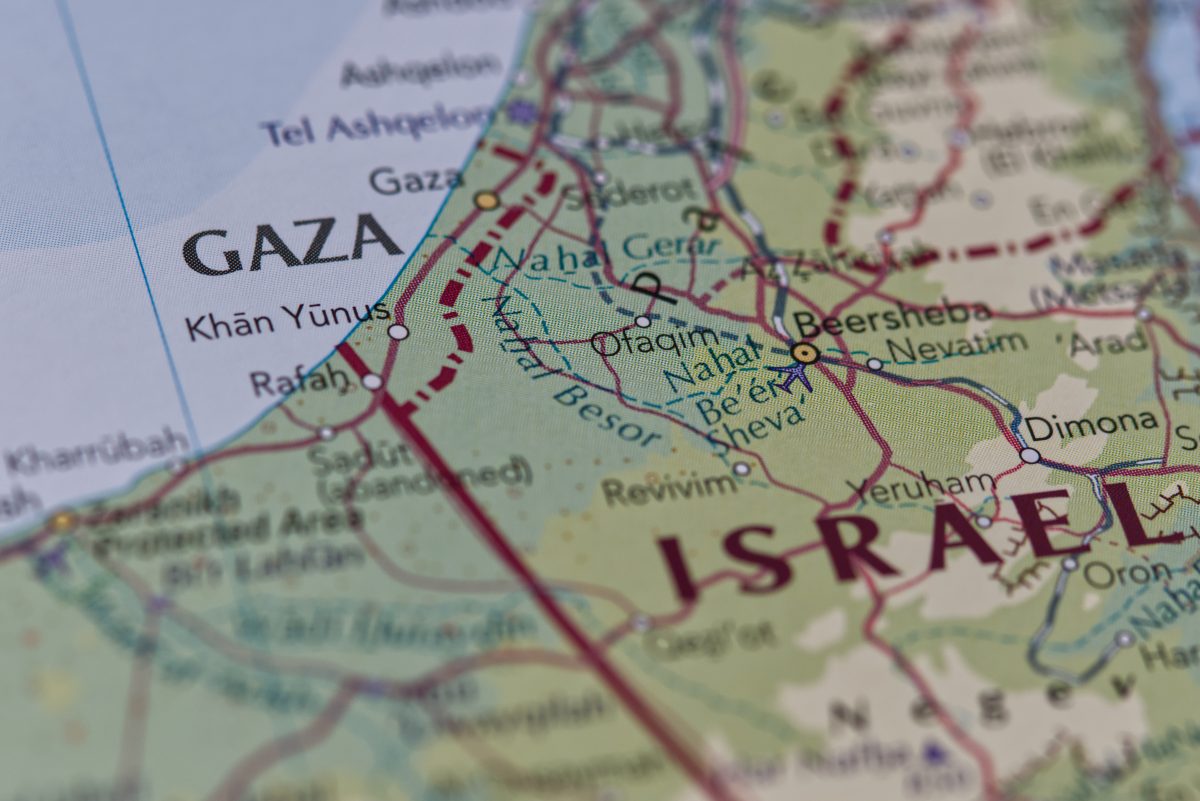As tensions rise from conflict in the Middle East, Israeli and Palestinian students at CSUN have been voicing concerns about their safety on campus.
The ongoing war between Israel and Palestine has left some students feeling uneasy about repercussions, such as doxxing, reflecting the impact the conflict has locally.
On Oct. 11, students held a vigil in honor of the Israeli lives lost as a result of the Oct. 7 attack by Hamas. Students Supporting Israel also hosted a fundraiser on Oct. 25 at Cleary Walk with the goal of raising funds for the Israel Defense Forces.
CSUN student and SSI member Shira Goldstein said they studied abroad in Israel and have friends in the IDF.
Goldstein talked about how the usual police presence on campus has helped with feeling safe.
On Oct. 19, the Students for Justice in Palestine held a vigil to recognize the Palestinians that have been killed or maimed due to the conflict.
The vigil included students speaking out against the conflict as well as calling for an end to the violence in the region.
A Palestinian student talked about how she has questioned her safety at times on the CSUN campus. Much like the other Palestinian students who voiced their opinions and shared their perspectives on the ongoing issue, she chose to remain anonymous for fear of “retaliation or being blacklisted.”
She said she feels that “there is more scrutiny over what Palestinians say than when supporters of Israel voice their opinion.”
She also said students at other schools, such as Harvard University, have experienced backlash for voicing their support for Palestine; they have been “blacklisted” by some of their professors and are having a hard time finding internships and jobs.
David Zucker, a CSUN student of Jewish descent, talked about his feelings of safety on campus and echoed some of Goldstein’s sentiments.
“I haven’t felt unsafe at CSUN or the surrounding community,” Zucker said.
Zucker attributed his sense of safety on campus to the peaceful environment and the overall respect that most CSUN students have for each other. However, he feels that his sense of safety could change, as he noticed there were posters of missing Israelis that had been ripped down around the country.
In response to these concerns, Zucker believes the Department of Police Services needs to continue to support the safety of students.
“[CSUN] needs to reaffirm their commitment to ensuring the security and well-being of all students, regardless of their culture or ethnicity,” Zucker said.
During the SSI event, a Palestinian student who also wanted to remain anonymous approached the table to speak with the members putting on the event. He spoke for about 20 minutes with Goldstein, discussing his perspective on the conflict between Israel and Hamas.
The Palestinian student stated that seven of his family members have died in Gaza since the start of the current conflict.
“People hate Israel because of what they are doing to Palestinians. That is genocide,” the Palestinian student said.
The conversation was peaceful, yet emotional at times, and both acknowledged the suffering that both of their peoples have gone through. It was during this conversation that Goldstein became emotional.
The discussion between Goldstein and the Palestinian student highlights the importance of having open, respectful dialogue to lessen cultural division.






